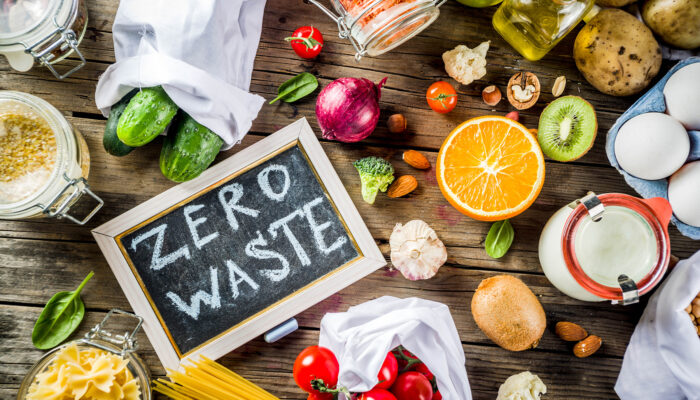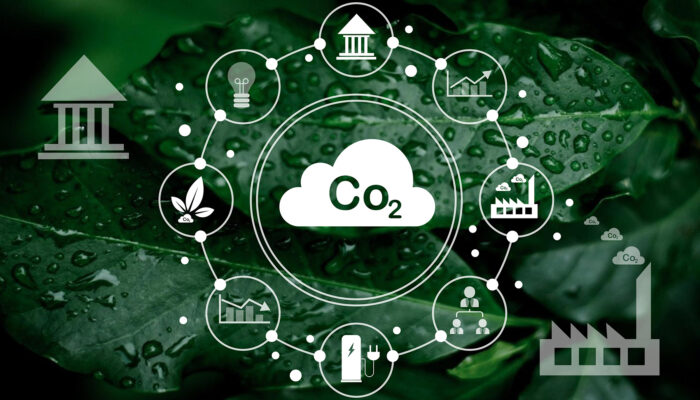The magnitude of the global food waste crisis is nothing short of alarming. Approximately one-third of all food produced worldwide—an astounding 1.3 billion tonnes—ends up in bins and landfills annually.1 This equates to roughly £1 trillion worth of food lost or wasted every year. In the UK alone, the scale is equally sobering: households and businesses squander around 9.5 million tonnes of food annually, with a value exceeding £14 billion.2
However, the implications of food waste extend far beyond mere financial loss. The environmental impact is profound and far-reaching. Food waste accounts for a whopping 8-10% of global greenhouse gas emissions3—a figure that, if food waste were a country, would make it the third-largest emitter after China and the United States. Moreover, the water footprint of food waste is enormous, with an estimated 250 cubic kilometres of water—three times the volume of Lake Geneva—used to produce food that is ultimately discarded.
Technological Solutions: A Deep Dive
As the gravity of the food waste problem becomes increasingly apparent, a wave of technological innovation is sweeping across the food industry. From AI-powered analytics to blockchain-based supply chain management, start-ups are harnessing the power of technology to create impactful solutions at every stage of the food journey.
The battle against food waste begins at the source: on farms and in fields
Here, innovative companies worldwide are making significant strides in helping farmers reduce food waste at the beginning of the food supply chain. These organisations are leveraging technology and creative solutions to address this critical issue, which not only impacts food security but also contributes to environmental concerns.
One notable example is Apeel Sciences, a California-based company that has developed a plant-derived coating to extend the shelf life of fruits and vegetables. This invisible, edible layer slows down water loss and oxidation, allowing produce to stay fresh for longer periods. By reducing spoilage before products even leave the farm, Apeel’s technology helps farmers maximise their yields and minimise waste. The company’s impact has been substantial; in 2023 alone, Apeel prevented over 60 million pieces of fruit from going to waste, giving produce more time to be enjoyed by consumers. This achievement not only reduced food waste but also had significant environmental benefits. By curbing waste, Apeel blocked the release of over 9 million kilogrammes of carbon dioxide equivalent into the atmosphere—comparable to the carbon sequestration of planting 151,600 trees. Moreover, the use of Apeel’s technology saved 2.7 billion litres of water, equivalent to 1,100 Olympic-sized swimming pools.4
In Africa, ThriveAgric is making remarkable progress in helping smallholder farmers reduce food waste and improve productivity. By enabling improved post-harvest techniques and storage methods, ThriveAgric has helped its farmers achieve a post-harvest waste rate of just 9%, a stark contrast to the approximately 50% average in Nigeria. This significant reduction in waste not only improves farmers’ profits but also contributes to climate mitigation efforts. ThriveAgric’s approach goes beyond waste reduction; they’re also focusing on improving yields sustainably. Additionally, the company has partnered with Acorn Rabobank to initiate a carbon credit sequestration project, enabling 30,000 farmers to practice conservation agriculture and plant 3 million mango trees using the humid agri-silviculture model.
Smart Packaging: Revolutionising Food Preservation in Transit
The journey from farm to retailer is fraught with opportunities for food to spoil or become damaged. This is where innovations in packaging and monitoring are making a significant impact.
Mimica Touch, a UK-based startup, has developed a groundbreaking smart packaging solution that could revolutionise how we determine food freshness. Their labels contain a gelatine-based solution that decomposes at the same rate as the food inside the package. As the food degrades, the label changes from smooth to bumpy, providing a tactile indication of freshness. This technology has the potential to extend the usable life of products by up to 14 days, dramatically reducing waste due to premature disposal.
Hazel Technologies is making remarkable strides with their innovative Hazel Breatheway product. This next-generation Modified Atmosphere Packaging (MAP) solution employs smart technology to maintain fruit and vegetable quality during transit, even when faced with temperature fluctuations. The Breatheway system uses Temperature Switch membranes customised to match the respiration rates of different produce types. When carbon dioxide levels spike within the packaging, the membrane activates, expelling excess CO2 and absorbing oxygen to stabilise the atmosphere before decay can begin. This innovative approach ensures that produce remains fresher and more marketable throughout its journey, significantly reducing waste and extending shelf life.
Retail and Foodservice: AI-Driven Inventory Management
At the retail level, the challenge of managing perishable inventory is being met with increasingly sophisticated AI solutions.
Wasteless, an Israeli startup, has developed a dynamic pricing system that uses machine learning to optimise pricing for perishable goods. The system takes into account factors such as expiration date, current stock levels, and historical sales data to automatically adjust prices in real-time. This not only reduces waste by encouraging the sale of items nearing their expiration date but also has the potential to increase overall revenue for retailers. In pilot programmes, Wasteless has demonstrated the ability to reduce food waste by up to 39% while increasing revenue by 2-3%.
Meanwhile, Winnow is tackling food waste in commercial kitchens with its AI-powered waste monitoring system. The technology uses computer vision to identify and weigh food items as they’re discarded, providing chefs with detailed insights into what’s being wasted and why. This data allows kitchens to optimise their purchasing and preparation processes, reducing overproduction and unnecessary waste. Winnow reports that kitchens using their system typically see a 40-70% reduction in food waste within 6-12 months, translating to significant cost savings.
Consumer-Focused Solutions: Empowering Individuals
Whilst much of the focus on food waste reduction has been at the industrial and retail levels, start-ups are also developing innovative solutions to help consumers reduce waste in their own homes.
One such company making significant strides in this area is Flashfood, an app-based marketplace that aims to eliminate retail food waste by connecting savvy shoppers with discounted groceries nearing their best-by dates across over 1,200 North American stores. To date, the company has diverted more than 33 million pounds of food from landfills, saved shoppers over $100 million, and provided affordable nutrition to hundreds of thousands of families. By partnering with major retailers and offering a free, user-friendly app, Flashfood has made it simple for individuals to participate in waste reduction efforts. This clever approach not only addresses environmental concerns but also promotes more accessible and affordable food options, demonstrating how technology can empower consumers to make a tangible impact in the fight against food waste.
OLIO, a food-sharing app, takes a different approach by fostering community connections to reduce waste. The app allows users to post photos and descriptions of surplus food items, which nearby neighbours can then request. This peer-to-peer model not only prevents edible food from being discarded but also builds social bonds within communities. Since its launch in 2015, OLIO has facilitated the sharing of over 5 million food portions, demonstrating the power of technology to enable grassroots waste reduction efforts.
Impact Investment and High-Profile Support: Catalysing Innovation in Food Waste Reduction
The rapid growth of food waste reduction start-ups is being fuelled by impact investors who recognise both the environmental imperative and the economic opportunity in this space. Funds specifically focused on food waste reduction, such as Astanor Ventures and Quadia‘s Food Waste Fund, are leading this trend. Astanor Ventures, with investments in companies like Infarm and Notpla, is betting on technologies that can transform the food system. Eric Archambeau, co-founder and partner at Astanor Ventures, emphasises their search for companies capable of creating systemic change in the food and agriculture sector. Similarly, Quadia’s Food Waste Fund invests across the entire value chain, from farm to fork, focusing on technologies that can create measurable impact.
The involvement of high-profile investors and celebrities has brought mainstream attention to this critical issue. A prime example is Apeel Sciences’ $250 million Series E round in 2020, which attracted investors like Oprah Winfrey and Katy Perry.
James Rogers, CEO of Apeel Sciences, notes that such high-profile investments not only provide capital but also amplify their message and help educate consumers about the importance of reducing food waste. This confluence of impact investment and celebrity involvement is creating a cultural shift in how we value and handle our food, driving innovation and systemic change in the fight against food waste.
Challenges and Future Outlook: A Technological Revolution in Food Sustainability
The food waste reduction sector, despite its promising innovations, faces significant challenges. These include the need for behavioural change at consumer and business levels, and the complexities of coordinating a fragmented food supply chain. Dr Liz Goodwin of the World Resources Institute emphasises that technology alone cannot solve the problem; a fundamental shift in how we value food is crucial. However, the outlook remains optimistic. The COVID-19 pandemic has heightened awareness of supply chain vulnerabilities, whilst growing climate change concerns have spotlighted food waste’s environmental impact. Governments are increasingly implementing supportive policies, creating a fertile ground for innovation.
The convergence of innovative start-ups, impactful technologies, and mission-driven investors is driving significant change. From AI-powered crop management to smart packaging and community food-sharing apps, technology is revolutionising every stage of the food journey. These solutions have the potential to dramatically reduce waste, mitigate environmental impact, and foster a more sustainable food system. This technological revolution isn’t merely about waste reduction; it’s reimagining our relationship with food, promising a more equitable and efficient global food ecosystem. Though challenges remain, the sector is poised at the dawn of a new era in food sustainability, where every technological advancement brings us closer to a world without edible waste.
Learn more about us.
View our transactions.










